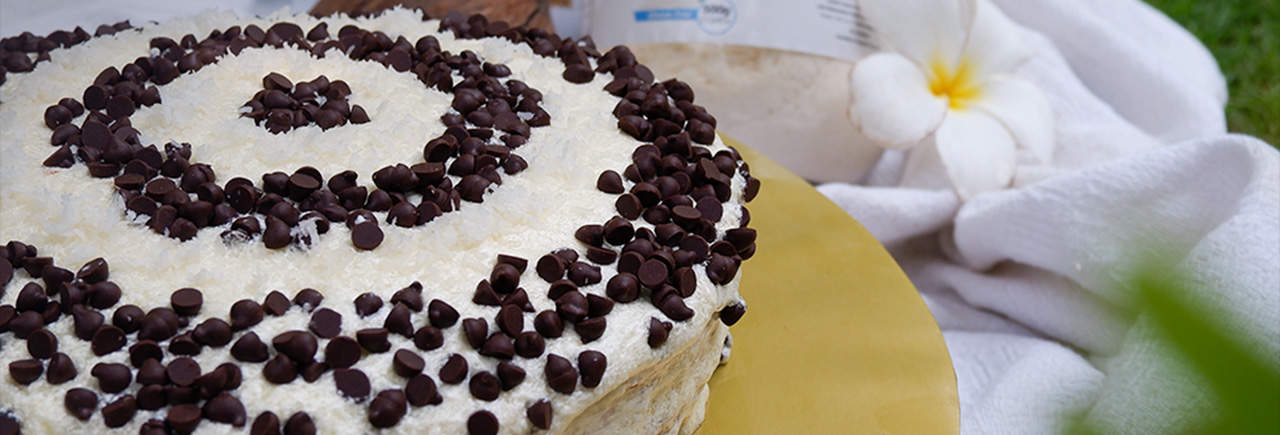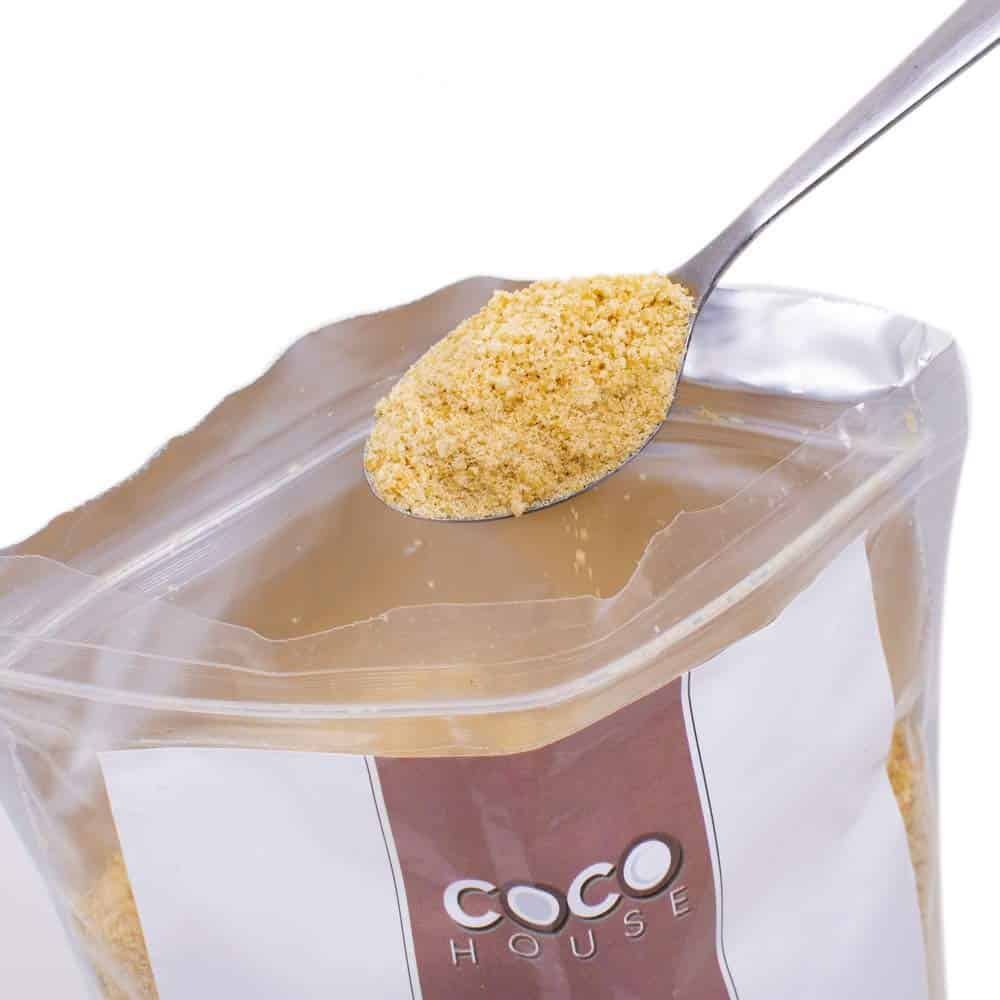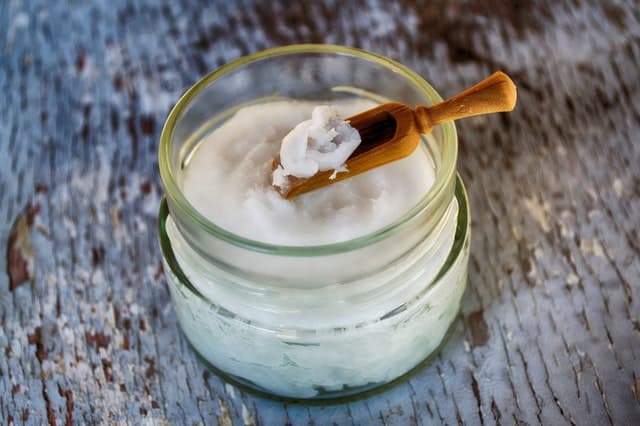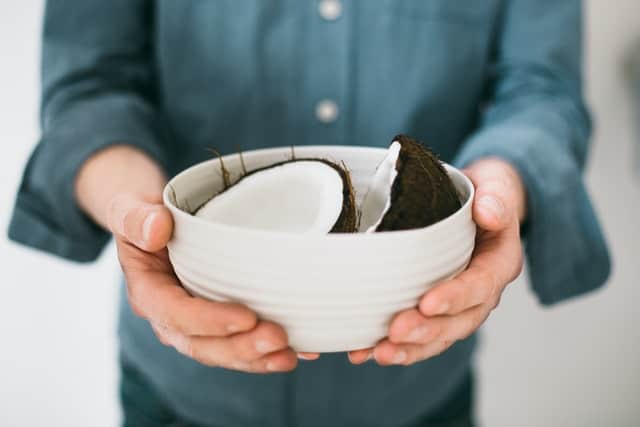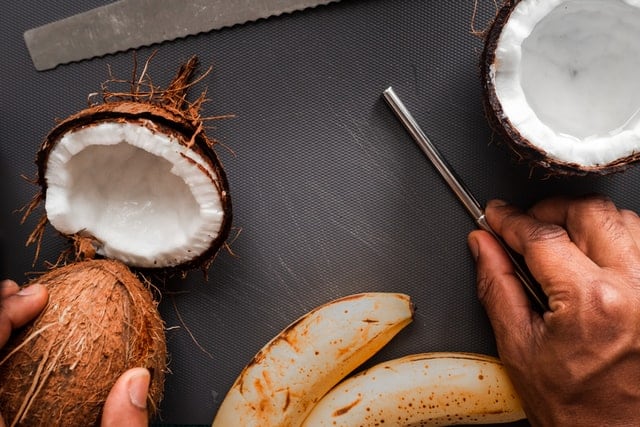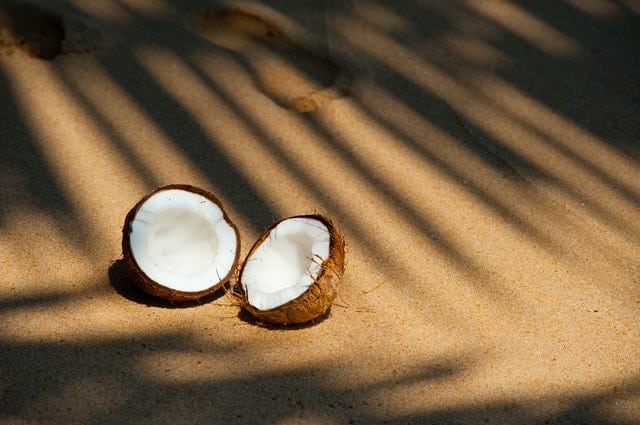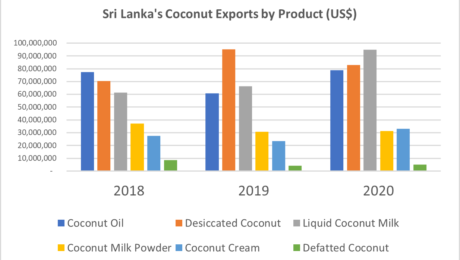Main Ingredients
For the cake:
- 1/2 cup butter
- 2 cups Coco House Organic Coconut Flour
- 1 tablespoon baking powder
- 1/4 teaspoon salt
- 1 1/2 cups Coco House Organic Coconut Sugar
- 3 large eggs
- 1 cup milk
- 1 teaspoon vanilla
For the frosting:
- 1/2 cup butter
- 5 ounces whole fat cream cheese
- 5 cups powdered sugar
- 1/2 teaspoon vanilla
- 1/4 teaspoon salt
- 1/4 cup whole or whipping cream
- 1-2 cups coconut flakes

Total time

Prep Time

Cook time

Yields
Method
PREPARATION
- Pre-heat the oven to 350° Fahrenheit (180° celsius), and grease the surface of two cake pans (8 or 9 inch/20 – 22 cm in size) with butter. Then add a very light layer of flour and continue to grease it around the surface of the pans.
For the cake:
- In a medium bowl, beat together the butter and the sugar at a moderate pace for 2 minutes until the paste is slightly thickened. Then, add the eggs and continue beating.
- In a medium bowl, whisk together the flour, baking powder and salt at a moderate rate. Then, add milk and vanilla and continue to beat until the paste is stabilized.
- Place the batter in the two pans. Bake for 30-35 minutes until the cake is golden brown (use a toothpick to test for stability). Take the cakes out of the oven and allow them to cool on a wire rack.
For the frosting:
- In a medium bowl, beat together the butter and the cream cheese at a moderate pace for 1 minute. Then add powdered sugar 1 cup at a time, whilst continuing to beat the mixture at a moderate pace. Add half a teaspoon of salt, add half a teaspoon of vanilla and beat the mixture for 3 minutes until a fluffy texture is obtained.
- To frost the cake, flip around one of the cakes and add a layer of the frosting mixture, and then place the other cake on top.
- Cover the cake with coconut flakes. (we did it with a handful and packed it gently on top of the cake). Enjoy!




